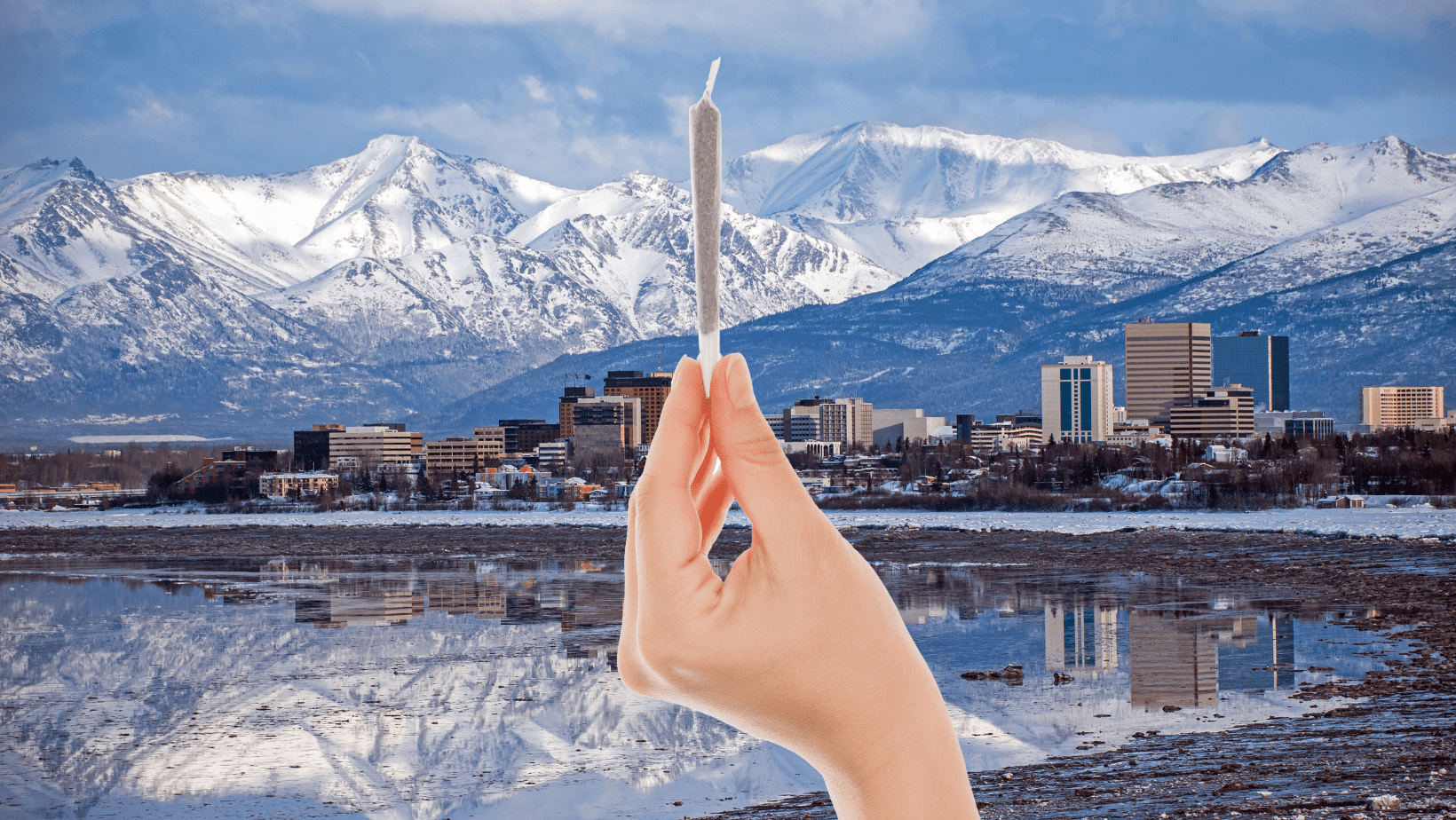Here’s a confession: I forgot about Alaska. I only ever knew that the Alaska cannabis market existed because I previously wrote marketing blogs for an Alaskan dispensary. Since shifting to writing about the industry for MJBI, Alaska has completely fallen off my radar.
Why is that? The state was one of the first to legalize medical cannabis back in the ‘90s and an early adopter of adult-use cannabis, legalizing recreational weed in 2014. It’s clearly a mature market.
Let’s take a closer look at what happens in The Last Frontier.
Alaska cannabis history
Alaska’s been in the cannabis game since the early days. It all started with decriminalization back in 1975, followed by an Alaska Supreme Court decision in Ravin v. State, which declared that the Alaska constitution protects the right to privacy, including an adult’s right to use and possess small amounts of cannabis. This made Alaska the first and only US state to declare a constitutional right to cannabis use.
It wasn’t until 2014 that the recreational use of cannabis officially passed in Alaska, with 53 percent of the vote. The new law allowed adults twenty-one and older to possess up to an ounce of cannabis, as well as cultivate up to six personal-use plants. By 2016, state-licensed dispensaries began to pop up. Prior to this, Alaska had legalized medical marijuana, but never built out a framework for medical dispensaries to exist.
Competition in the Alaska cannabis market
Alaska is up there in terms of dispensaries per capita. According to a report, Alaska ranks fifth in the nation for dispensaries per capita. The state comes in behind Oregon, Oklahoma, Montana, and Colorado. Overall, the state has more than 150 operating retail stores.
With that many retailers operating in major hubs like Anchorage, Juneau, and Fairbanks, it’s no surprise that competition is abundant in the Alaska cannabis market.
And while the competition may be buzzing, the majority of the shops are small, independent-owned, mom and pop stores. According to Anchorage Daily News reporter Zachariah Hughes, few Alaska cannabis businesses have more than one site for retail.
Still, competition among small, independent shops can be fierce, and some operators believe they must vertically integrate to survive.
The large number of mom and pop shops may, on the surface, make it look like Alaska is an easy market to enter and compete in. But structural differences in the state’s market, such as residency requirements for business owners and no license caps, make it difficult for some to survive.
According to a report in Anchorage Daily News last month, the Alaskan cannabis market appears to be hitting a plateau, with employment and tax revenue increases leveling out.
Another interesting factor for cannabis in Alaska is the transportation of products. In the lower states, cannabis is typically transported by car and within state lines. But much of Alaska is not connected by roads. The state only has two testing facilities, and since they’re on the road system, most of the state’s cannabis is grown on the road system so that products can be tested before sale.
However, consumers aren’t as limited. Residents are allowed to carry cannabis products on intrastate commercial flights, so long as the goods are kept as carry-ons.
Licensing
The license structure in Alaska allows for both on-site consumption options as well as vertical integration. The only limit on the number of licenses a business owner can hold is for testing facilities, as owners are not allowed to be affiliated with any other cannabis operation.
All cannabis licenses are premise-based, so new applicants must first secure a location that adheres to all local ordinances and zoning codes. Application fees are $1,000 for a new marijuana establishment, and if approved, fees for dispensaries and standard cultivation licenses are $5,000.
The numbers
Alaska’s cannabis industry averaged 1,566 cannabis-related jobs in 2021, with $48.3 million in employee wages. The industry also brought in $28.9 million in excise taxes for the state’s general fund in 2021, excluding additional taxes collected in various cities. Since its inception, the Alaska cannabis market has brought in more than $119 million in excise taxes.
By the end of 2022, Alaska was reported to have 459 active cannabis licenses, which includes dispensaries, cultivators, manufacturers, and the entire state’s two testing facilities. The Matanuska-Susitna Borough holds the largest share of licenses, with 133 cannabis businesses in the region. Next up is Anchorage with 105, and the Fairbanks North Star Borough with 71 cannabis licenses.
Looking ahead with a new adult-use cannabis task force
In late 2022, Alaska Governor Mike Dunleavy issued an administrative order for the creation of an advisory task force for recreational cannabis. The goals for the new task force include reviewing the current tax and fee structures and regulations, as well as providing recommendations for ways to improve.
“In the past seven years Alaska’s marijuana industry has flourished but is still considered a new and evolving industry in Alaska,” said Dunleavy in a public statement. “As we would expect to see with any new industry, concerns have been raised about the structure the industry has been operating under.”
The new task force has thirteen voting members, including a member of the Alaska Marijuana Control Board, representatives from local cannabis businesses, agency heads, a government representative, and a member of the public. The group is expected to meet monthly.
Additionally, Alaska has made no moves toward social equity, including expunging previous records or waiving/reducing various fees for aspiring license holders for particular communities. We hope to see changes in this area as the state reevaluates its cannabis industry.





